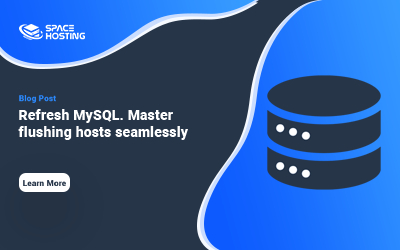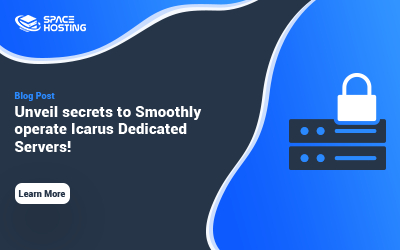Understanding the Flux Node Costs it’s crucial if you are planning to join the Flux Network. In fact “Flux Node Hosting.” refers to operating a Flux node on a server managed by an external service provider. The operation of a node within the Flux network entails maintaining a duplicate of the blockchain and contributing to the network’s agreement process. Flux is a decentralized system for safely storing and trading digital assets so In this article provided by Space Hosting, we will learn more about Flux Node Hosting and how much does flux node costs.
Table of Contents
- Introduction
- How to Conduct Flux Node Hosting?
- Several Pros and Cons of Hosting Flux Nodes
- How much does Flux Node Hosting Cost?
- Alternatives of Flux Node Hosting
- Conclusion
Introduction

By using hosting services for Flux nodes, people and organizations may run a Flux node without having to spend money on the necessary hardware and infrastructure. Service providers typically offer users a user-friendly platform to manage their nodes and ensure their continuous availability and security. These platforms come with reliable uptime and robust security measures. Hosting a Flux node enables users to engage with the Flux network without the requirement of possessing the necessary resources and technical expertise to independently maintain a node.
How to Conduct Flux Node Hosting?
Running specific software on a computer or server that takes part in the Flux network is how a Flux node operates. The program is in charge of processing and validating transactions, keeping a copy of the Flux blockchain, and participating in the network’s consensus procedure.
Typically, individuals must first acquire and set up the Flux application on their personal computer or server to establish a connection with the Flux network and operate a Flux node. The typical method includes the creation of a unique node ID, the configuration of network-related settings, and the activation of the node application. Nonetheless, it may vary significantly based on the particular software being used. By staking FLX tokens, nodes may take part in the network’s consensus procedure and vote on proposals to influence the network’s path.
Several Pros and Cons of Hosting Flux Nodes
Due to the fact that maintaining the blockchain may be resource-intensive, operating a Flux node needs a certain level of technical proficiency and physical resources. However, users may also use hosting providers to run a Flux node without having to take care of the infrastructure themselves.
Flux Node Pros
- Less expensive hardware and maintenance: By employing a Flux node hosting service, customers may run nodes without having to spend money on their own hardware and infrastructure. This can save initial expenses as well as continuing maintenance and upkeep expenses.
- Trustable uptime and support: Users are often given reliable uptime and technical assistance by Space hosting services, which can be essential to maintaining a constant presence on the network.
- User-friendly management interface: Hosting companies could offer a user-friendly management interface for Flux nodes, making it simpler for customers to keep an eye on their nodes and interact with the network.
- Protection against cyber threats: Hosting services may include security measures including firewall security, frequent upgrades, and encryption.
Flux Node Cons
- Lack of control: Users may have less control over the hardware and software that are being utilized to run their nodes if they employ a hosting provider. Their ability to adjust configuration or address issues may be restricted as a result.
- Cost: While hosting a Flux node can be more affordable than running it on your own hardware, there is still a fee involved. Monthly charges for utilizing the hosting service can accumulate over time.
- Limited alternatives for hosting companies: The availability of hosting companies supporting Flux nodes may be restricted, making it challenging for users to find a company that meets their needs.
- The danger of centralization: If a few providers host a substantial number of Flux nodes, it could increase the risk of centralization and potentially compromise the network’s decentralization.
How much does Flux Node Hosting Cost?
The cost associated with hosting a Flux node can vary, influenced by aspects such as the hosting provider, the necessary hardware, and the number of nodes in operation. Should you choose to personally host the node, there would be costs for acquiring hardware that fulfills the essential requirements to operate a Flux node. You’ll also bear the cost of electricity and internet connectivity needed to keep the node operational round the clock.
Alternatively, hosting providers such as Space Hosting can supply you with a ready-to-use Flux node equipped with all necessary hardware and software. For the provision of the infrastructure and the ongoing maintenance required to keep the node up and running, these providers typically charge a fee.
The expense of maintaining a Flux node can range from a modest monthly sum to several hundred dollars, varying with the hosting company and the level of support and services they provide. To find the hosting option that best fits your needs and budget, it’s crucial to undertake research and compare different hosting solutions.
€ 2.99
First Month
Alternatives of Flux Node Hosting
here are several alternatives to Flux nodes that can be used to participate in other blockchain networks. Here are a few examples:
- Bitcoin nodes:
- Ethereum nodes:
- Cardano nodes:
- Polkadot nodes:
- Tezos nodes:
These are only a few examples of alternate nodes in the blockchain ecosystem. Before establishing a node, it’s vital to undertake research and grasp the details of each network because each one may have different features and needs.
Conclusion
In conclusion, anybody wishing to use the Flux blockchain network and profit from staking FLX tokens should consider hosting a Flux node as a wise investment. Nonetheless, the price of hosting a Flux node might vary based on elements like the hardware specifications, the hosting company, and the amount of support required.
Operating a Flux node can offer a number of advantages, including the chance to take part in the network’s consensus procedure, earn bonuses for staking FLX tokens, and add to the network’s security and decentralization. Flux is a flexible and efficient platform for blockchain development as it offers a variety of tools and capabilities for producing and maintaining digital assets.
Ultimately, the decision to host a Flux node should hinge on the goals, budget constraints, and technical proficiency of the individual or organization concerned. It’s crucial to undertake comprehensive research and weigh the pros and cons before making a final choice.
All in one Digital Package by Space Hosting

In this project, we will help you in transforming the idea you have in your mind into reality. we will provide you with IT resources, designers, and lawyers and when the project development will be completed then will help you with marketing also.



0 Comments